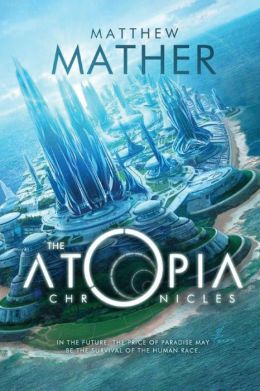This week I'm looking at the hilariously titled (if a tad overdramatic) article 'Artist's spoof of Ladybird provokes Wrath of Penguin' from The Guardian newspaper online that I saw a few weeks ago.
I'll post a link to the article below but the potted version is thus: artist Miriam Elia produced a satirical book in the style of Ladybird's classic children's books. Penguin, who own the Ladybird imprint*, don't appreciate their books being emulated as such and took action, believing that she had infringed their copyright. So, once she has earned enough to cover the costs, Elia now has to have her artwork destroyed. Ladybird has its reputation, she narrowly avoids large debts, the little guy lost out. wins, Big bucks corporation wins, creativity stifled! Really?
Well, for starters, Ladybird's 'wrath', whilst it has forced Elia to stop producing her art for financial gain, has allowed her to sell until she covers the costs, which as the article stresses, has been accepted by the artist.
She said:
"I've been talking to them a lot and suggesting ways around the problem. And they do understand. There's no malice, but it's harsh because they can destroy the work. I just want it to be appreciated. It was supposed to be an homage to Ladybird – and a bit of a satirical comment on the art world, I suppose."
So, she's not taken it too badly. However, the fact that she is using classic Ladybird-inspired presentation as a format in which to satirize art and its relationship to consumerism shouldn't stop her from creating art, should it? Within the work, she makes reference to balloon dog sculptures by Jeff Koons, the artist synonymous with reproducing banal consumerist objects as art and copyright infringement lawsuits of his own, but as his record-breakingly expensive sculptures show, this hasn't stopped him from creating something using pre-existing images to make art. So why should this only apply to the big guns of the artistic/ creative/ literary world?At Sixth Form college, I took part in a debate about copyright laws and within the debate we discussed its validity in a postmodern world, with the supposed democratisation of knowledge and ideas and the the changing nature of both artistic and consumer ownership, following the pervasive influence of the internet (see link below for copyright info).
I shan't bore you with the details (which is probably a good thing as I can't really remember them all), but I argued that copyrights, whilst they do, as in this case, disadvantage the smaller artist trying to express their ideas and get them out there, they do protect those that depend on these artworks to live. So, in promoting an anti-copyright, idealised world of entirely free and fair interchanges of ideas, are we actually hurting artists in all disciplines that need copyright to protect their livelihood?
Before international fame and fortune, JK Rowling was a single parent facing poverty, but she took care to copyright her books and ideas, which gave her work security in that people could not rip it off as their own creations, and in doing so was able to create the biggest selling book series in history (with movie franchise to boot.) This is one example of when copyright protected a creative source's assets, allowing them to continue their work.
Whilst it is true that Rowling, her publishers and Time Warner have since sparked legal disputes of their own, extreme opposition has claimed that the extensive steps taken to prevent anyone reading her books before release date denies enthusiasts of their 'right to read', taking this tension between creative rights and copyrights to the opposite extreme. Roland Barthes might have said that once literary work goes public that "the author is dead, long live the reader", but to demand to read a book before it is released is murdering them a little prematurely to satisfy your book-based consumer cravings, I think!
To lead back to the article I started with, Elia also stated that:
"It was a bit of a shock. I never really thought about copyright," she said. "Artists just respond to the world in your little room and you're not thinking about much else. You just think: 'Oh, this will be great!'"
An unfortunate case of innocence and a lack of funds to help fight Penguin's case, it would seem.
Ultimately, the perspective I've gained from this is that viewpoints like hers are at best naive and Elia has paid the creative price. We may live in postmodern world, where high and low culture are brought together and cool references to other bits of pop culture are embedded in our favourite art, music, TV and film, but ultimately consumerism still rules our engagement with art. Our concept of ownership (particularly regarding digital downloads) may have changed, but the need to exchange money still exists. Whatever your opinions on copyright may be, if you're an artist who will overtly reference or re-use another person's work, some awareness of the risks and legalities are required, something which Elia had clearly not considered, whilst clearly getting the postmodern satire down to a T.
This issue is something that also affects smaller publishing houses, record labels and artists of all kinds- without copyright to protect them, small companies like the one I currently work at would suffer financially as their work is copied, with no legal or financial recognition for the people that worked on it originally, so it's worth remembering that you're helping some little guys out there somewhere when you buy the official copyrighted version.
What do you think?
Brown xxx
*An imprint is in this case a trade name under which a publishing company produces books. Companies can have several imprints that cater to different consumer demographics (eg Ladybird is the imprint that Penguin use to publish books that are attractive to children and their parents, as well as supplying Ladybird Vintage books for retro nostalgia purposes).Check Wikipedia for definition goodness: http://en.wikipedia.org/wiki/Imprint
Essays and articles related to my waffling:
The Death of the Author -essay by Roland Barthes (1967)
The Work of Art in the Age of Mechanical Reproduction -essay by Walter Benjamin (1936) These essays are worth the read if you like this sort of debate- and want to seem edjumacated too :p
Original Guardian article: http://www.theguardian.com/books/2014/mar/02/artist-ladybird-book-penguin-copyright-miriam-elia
Copyright stuff: http://www.ipo.gov.uk/types/copy.htm
Jeff Koons, Wikipedia: http://en.wikipedia.org/wiki/Jeff_Koons







